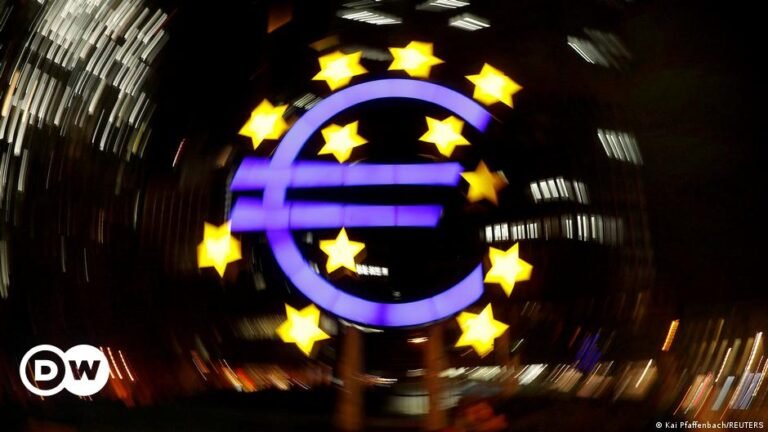The so-called Green New Deal is the flagship project of the current European Commission under its president Ursula von der Leyen. Aimed at making the 27-member EU climate-neutral by 2050, the initiative is estimated to require annual investments of up to €1 trillion ($1.09 trillion).
This is a daunting sum to raise even in good economic times, but the current circumstances are far from favorable. The Russian invasion of Ukraine has underscored the need for increased security spending. At the same time, Europe faces energy supply shortages, rising inflation, labor shortages, and slowing growth.
With many EU member states running budget deficits amid rising public debt, governments face the question of how to finance this huge expenditure. The topic was a major point of discussion at the Brussels Economic Forum (BEF), held on May 16.
For the 20 eurozone members using the single European currency, the euro, the scope for additional spending is limited. They must adhere to strict fiscal rules, such as national debt not exceeding 60% of annual GDP, and government budget deficits capped at 3%.
Stability Pact — tough rules and little room to maneuver
During the COVID-19 pandemic, these limits were suspended but have since been reinstated. Countries that violate the financial rules of the so-called Stability Pact are risking penalties again, despite a reform adopted in February 2024 that allowed for more fiscal flexibility. Each eurozone country can now negotiate with the EU on how and when to restore fiscal order.
The Greek minister of economy and finance, Kostis Hatzidaki, described the result of the monthslong negotiations as a “typical European, yet good compromise.”
Speaking to an audience at the BEF, he added a cautionary note though: “Fiscal prudence is imposed, first and foremost, by the markets. If you totally ignore this then you may learn the lesson we learned in Greece in the previous decade.”
During the so-called European sovereign debt crisis from 2010 to 2012, Greece was so heavily indebted that it could no longer borrow from financial markets, which led to EU bailout packages tied to strict austerity measures and a loss of fiscal sovereignty.
Debt rules in the crosshairs of ambitious goals
Not everyone believes fiscal prudence should be a priority right now. Tea Jarc, a senior official at the European Trade Union Confederation, argues that spending on climate change is not irresponsible consumption but essential investment.
“We cannot fool people anymore, saying the Green Deal is a priority. Clearly, it’s not a priority if we’re not willing to invest in it… if we impose austerity measures,” she told the forum.
One way to alleviate EU countries’ funding needs could be to increase private sector investment. With its 450 million people and €17 trillion annual economic output, the EU is a giant. Yet, in mobilizing private capital, it is a dwarf.
Danuta Hübner, a Polish economist and a member of the European Parliament, laments that the EU hasn’t even created a competitive capital market yet. “Shame on us. If you compare it [the EU capital market] to the twice as big US market. Ours is not only small but illiquid and strongly fragmented,” she said at BEF panel discussion, blaming national policies of member states for different financial rules, from savings to taxation.
The EU commissioner for the economy, Paolo Gentiloni from Italy, fully agrees with Hübner. “You wouldn’t find a single EU policymaker who’s against the Capital Markets Union,” he said during the BEF, but when the finance ministers meet “it’s very difficult to take even very limited steps” towards the goal.
Raising common debt
Another funding source could be joint EU borrowing, which was first attempted during the COVID-19 pandemic to finance parts of a large stimulus package.
More recently, calls for EU-wide borrowing from different EU capitals have been echoed by the economy commissioner himself. But Gentiloni prefers to call the debt instruments, formerly known as eurobonds, “common instruments for common goals.”
“This was impossible even to discuss five years ago, it was a crazy idea in the European institutions. Now it is possible. I think it is urgent for us to establish the way to use common tools for common goals of investments,” he said.
However, issuing common EU debt faces strong opposition in some countries, notably Germany, the Netherlands, and Finland, which fear that their credit ratings might suffer if they share debt with economically weaker member states.
Higher taxes for a greener future
Julia Cage, an economics professor at Sciences Po in Paris, proposes a wealth tax directly levied by the EU which would make it harder for rich and super-rich EU citizens to sneak through national taxation loopholes.
“If we are too nice, and there’s no tax control and no fiscal administration in charge of making sure it will work well, it will not work well,” she told DW.
According to Cage, the wealthy should also bear more of the costs of fighting climate change. “There are very good studies, for example by the World Equality Lab, that show that rich people pollute much more than poor people,” she said, citing the use of larger cars and homes, yachts, and airplanes by the wealthy which would contribute significantly more to global warming.
A progressive environmental taxthat increases with an individual’s carbon footprint, could make the wealthy more accountable for their emissions, she argued, and distribute the financial burden of stopping climate change more equitably.
This article was originally written in German.

